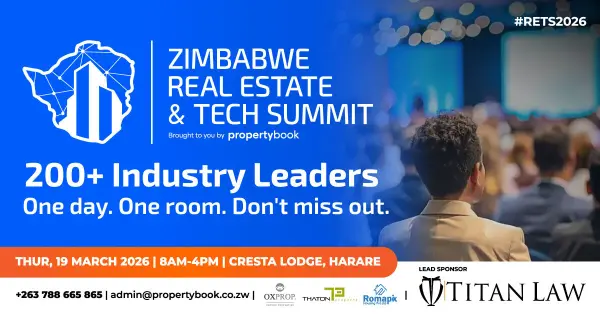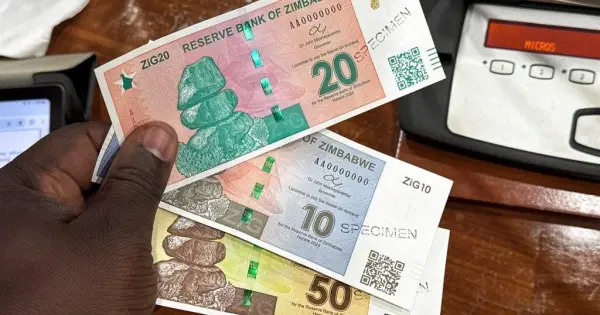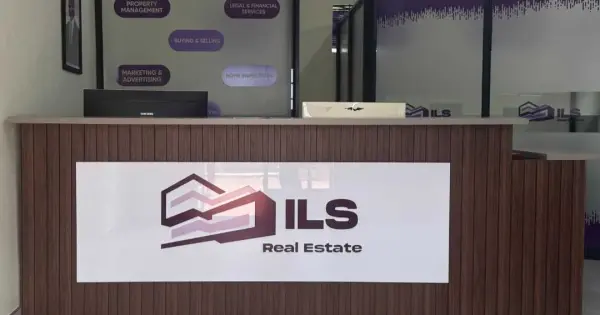The numbers don't lie. Four-bedroom rentals in Harare are pulling in around USD 1,600 per month. Nationally, they're averaging USD 1,500. Smart landlords are seeing annual yields of 6–12 percent. Not bad for a market that many still consider risky.
But here's the thing – those returns only come if you know what you're doing. Too many landlords are leaving money on the table or worse, losing their shirts because they skipped the basics.
Let's fix that.
First Things First: Know Your Tenant (Really Know Them)
Here's a sobering fact from Investopedia: failing to properly vet tenants ranks among the top mistakes new landlords make. It's not just about getting someone to pay rent. It's about protecting your investment from people who might trash it.
The golden rule? Rent shouldn't eat up more than 30 percent of their monthly income. Get three months of bank statements. Call their boss. Talk to their previous landlord – and actually listen when they tell you about late payments or disputes.
Don't stop there. Where legally allowed, do criminal background checks too. Think of it as insurance you pay for upfront instead of repairs you pay for later.
Pro tip: Platforms like Propertybook connect you with registered estate agents in Zimbabwe who are used to doing this for you while keeping you on the right side of fair-housing laws.
Your Lease: The Document That Makes or Breaks You
A sloppy lease is like building a house on sand. Manifestly Checklists warns that poorly drafted clauses – like demanding professional carpet cleaning – can be unenforceable or even illegal.
Your four-bedroom lease needs these five non-negotiables:
- Lease terms and rent details. Start date, end date, how often they pay, how they can pay.
- Security deposit rules. How much, when you keep it, whether you pay interest.
- Who fixes what. You handle the big stuff (plumbing, structure). They handle the daily upkeep.
- House rules that stick. How many people can live there, pet policies, noise limits.
- Exit strategies. Renewal options, notice periods, grounds for eviction.
Maintenance: The Difference Between Profit and Loss
Here's what separates successful landlords from the rest: they fix small problems before they become expensive disasters. Quarterly inspections aren't just good practice – they're profit protection.
Check these four areas religiously:
- Roof and gutters before they leak into your profit margins.
- Plumbing and electrical systems before they become safety hazards.
- HVAC and appliances before tenants start complaining.
- Exterior grounds because first impressions matter.
Build relationships with reliable local contractors now. When something breaks at midnight, you'll need someone who answers the phone. Document everything. Every inspection, every repair receipt. This paperwork protects you when warranties expire or disputes arise.
The Money Game: Track Every Dollar
Investopedia suggests the "1 percent rule" – monthly rent should equal at least 1 percent of your property's purchase price. It's a quick sanity check for profitability.
But don't stop there. Track these key numbers:
- Monthly rental income against those USD 1,500–1,600 benchmarks.
- Maintenance reserves – budget 10–15 percent of annual rental income.
- Vacancy allowance – 5–10 percent for those inevitable turnover periods.
- Operating expenses including utilities, insurance, and property taxes.
- Net operating income and cash-on-cash return to measure real performance.
When Things Go Wrong (And They Will)
Perfect tenants don't exist. Neither do problem-free properties. The key is handling issues before they explode into expensive legal battles.
Acknowledge tenant concerns fast. Put solutions in writing. Set clear timelines for non-urgent fixes. For emergencies – water leaks, electrical hazards – you've got 24 hours max.
When talking doesn't work:
Issue formal notices as Zimbabwean tenancy law requires. Try mediation through neutral third parties. As a last resort, go to court – but follow every procedural requirement or face delays and fines.
Stay Legal, Stay Profitable
Zimbabwean rental laws evolve. What worked last year might cost you this year. Illegal lease conditions can void entire agreements and trigger fines.
Your compliance checklist:
Register tenancy contracts if local authorities require it. Get municipal compliance certificates for safety and zoning. Declare rental income on tax filings – especially with 2025 budget changes to rental income tax rates. Maintain insurance covering property damage and landlord liability.
Need legal backup? Titan Law at 2 Pevensy Road, Harare (open Monday–Friday, 8:30–18:00) can review your compliance and update your processes.
The Bottom Line
Four-bedroom rentals in Zimbabwe offer solid returns – if you do the work. Screen tenants properly. Write bulletproof leases. Maintain your property. Track your money. Handle problems quickly. Stay legal.
Skip any of these steps and those 6–12 percent annual yields turn into expensive lessons.
Ready to get serious about rental income? Visit Propertybook.co.zw for consultation services and property listings.
Essential Resources:




